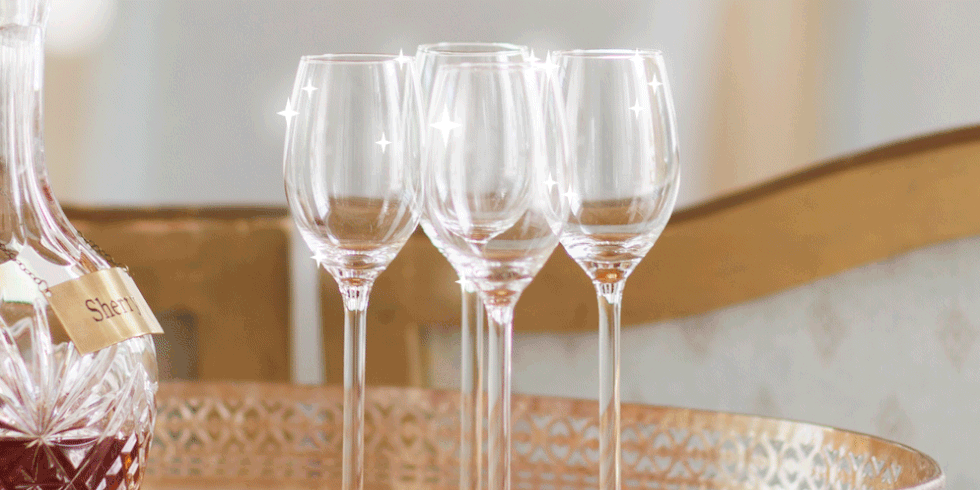
[ad_1]
You just washed a batch of glasses, but for some reason they still look foggy and in desperate need of another cycle. What gives? According to Carolyn Forte, Executive Director of the Good Housekeeping Institute Cleaning Lab, two different things could be happening: Hard-water minerals are creating a film build-up or your dishwasher permanently etched the glass. To banish the former, you’ll need these cleaning essentials:
What You’ll Need:
Soak in white vinegar
If your issue is hard-water minerals, all you have to do is soak your glasses for five minutes in white vinegar. Since it’s acidic, it’ll dissolve the minerals. For very heavy spots, you can warm the vinegar before soaking. If stubborn spots still persist, gently rub them off with a little dab of baking soda on your fingertip. Be extra gentle here. Baking soda is very mildly abrasive and shouldn’t scratch, but add a few drops of water to make a paste if you are concerned about damaging the glass.
Rinse your glasses
Then rinse each glass individually by hand under warm or cold water.
Dry with a microfiber cloth
Dry your glasses with a lint-free towel or a microfiber cloth before drinking out of them again. It’s best to do this as soon as you rinse them so no new hard water stains build on your glasses while they air dry.
Use this method to clean cloudy vases too. For items like glass tabletops and windows that you can’t soak in a bucket of vinegar, spray vinegar directly onto the glass surface and allow it to sit for five to 15 minutes. Wipe away the vinegar with a wet microfiber cloth and then use a dry microfiber cloth to dry the glass.
How to prevent future buildup
If this doesn’t work, chances are your glass is etched — which, sadly, means you’re out of luck. “If the film is etching, which happens to some types of glassware in the dishwasher, that, unfortunately, is permanent and can’t be removed,” explains Forte. That’s why you should always wash your most prized vessels by hand.
In some parts of the country, soft or mechanically softened water (water without calcium, magnesium and other metals) combined with dishwasher detergents and heat can cause etching, an actual change to the structure of certain types of glass. It happens on both expensive lead crystal and cheap glassware. If you have softened water, use the least amount of detergent necessary to get a good cleaning, don’t overload the dishwasher so water can run off freely and remove glasses immediately after the wash cycle to avoid the high heat of drying, which can accelerate the etching. Dry them by hand or just keep them out of the dishwasher completely and wash them by hand.
This content is created and maintained by a third party, and imported onto this page to help users provide their email addresses. You may be able to find more information about this and similar content at piano.io
[ad_2]
Source link
